
Lactation / Breastfeeding Continuing Education Bundle #5 (26.5 Hours)
Originally offered in 2017 at our GOLD Lactation Conference.It is a resource suitable for all skill levels and is a perfect fit for IBCLC's, Lactation Consultants, Nurses, Lactation Educators, Breastfeeding Counselors, Mother to Mother (Peer to Peer) Support Workers, Midwives, Physicians, Dietitians, Doulas, Childbirth Educators and anyone else working or studying within the maternal-child health industry.
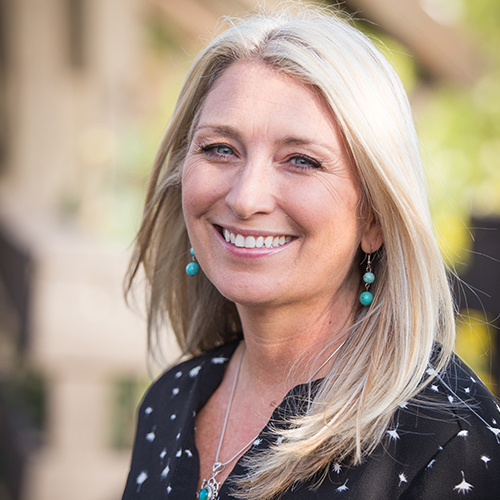

Laurel Wilson, IBCLC, CLE, CCCE, CLD is a TEDx and international speaker, author, pregnancy and lactation expert, and consultant. She served as the Executive Director of Lactation Programs for CAPPA, the Childbirth and Postpartum Professional Association for 16 years and now is on the Senior Advisor Board. She served on the Board of Directors for the United States Breastfeeding Committee from 2016-2019. She also is on the Advisory Board for InJoy Health. She owns MotherJourney, focusing on training perinatal professionals on integrative and holistic information regarding pregnancy, childbirth, and breastfeeding. She has her degree in Maternal Child Health: Lactation Consulting and is an internationally board certified lactation consultant. As the co-author of two books, The Attachment Pregnancy and The Greatest Pregnancy Ever, original Editor of the CAPPA Lactation Educator Manual, and contributing author to Round the Circle: Doulas Talk About Themselves, she loves to blend today’s recent scientific findings with the mind/body/spirit wisdom. Laurel has been joyfully married to her husband for nearly three decades and has two wonderful grown sons, whose difficult births led her on a path towards helping emerging families create positive experiences. She believes that the journey into parenthood is a life-changing rite of passage that should be deeply honored and celebrated.
Topic: Epigenetics and Breastfeeding: The Potential Longterm Impact of Breastmilk - [View Abstract]
Topic: Hold the Phone! Diet Does Matter During Breastfeeding: Implication of Diet on Fatty Acid Composition and Other Nutrients - [View Abstract]
Topic: Postpartum Mood Disorders, Breastfeeding and the Epigenetic Links from Past Into Future - [View Abstract]
Topic: Talk To Me: How Breastmilk Acts as a Communication and Gene Expression Tool Between Mother and Child - [View Abstract]
Topic: The Milk Sharing Conundrum - The Grey Area Between Scope and Need - [View Abstract]
Topic: The Placenta and Breastmilk-Unraveling the Mysterious World of the Intelligent Organs that Protect our Babies - [View Abstract]
Topic: Understanding Zika and Lyme and Breastfeeding - [View Abstract]
Topic: Unraveling the Mysteries of Human Milk: The Fascinating Role of Neohormones, Epigenetics, the Microbiome and More! - [View Abstract]
Objective 1: Identify main source of transmission of Zika and Lyme disease
Objective 2: Identify at least one potential risk during pregnancy or breastfeeding of Zika and Lyme disease
Objective 3: List three ways pregnant and breastfeeding mothers can protect themselves from Zika and Lyme disease
With the recent spread of the virus, Zika and the bacterial infection, Lyme Disease, many pregnant and breastfeeding families worry about the potential impact on their babies. There is a great deal of inaccurate information on the internet regarding these diseases that many parents encounter. Having good resources and current information on these emerging diseases is imperative for new families. This presentation will address transmission of the diseases, risks to babies prenatally and during breastfeeding, and precautions for pregnant and breastfeeding mothers to take.
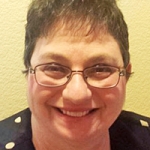

Debbie Albert, PhD, BSN, IBCLC, is a full time lactation consultant at UC Davis Med Center--working with all facets of their lactation service; including maternity floor, level IV NICU, pediatrics, PICU, and Employee Breastfeeding Support Program. She is also a prenatal instructor with their patient education program, nursing staff educator, and chairs the UCD Breastfeeding Task Force and the UCD Breastfeeding Support Program Committee. She received an Employee Excellence Award June, 2013 and June, 2015, and a Nursing Excellence Award in May, 2016. In addition, UC Davis programs have received IBCLC Lactation Care Awards and Sacramento Coalition and California State Coalition Breastfeeding Awards. Debbie has lactation experience in Florida, Texas, and California. She is Member of the LEAARC Board, a member of ILCA’s Equity Committee, and UCD Status of Women Committee. She is married to Dan Albert for 33 years, and has two sons, Josh (28), and David (24).
Objective 1: Describe symptoms associated with general Raynaud’s syndrome (primary and secondary) and Raynaud’s of the nipple
Objective 2: Identify other ailments that are typically diagnosed in place of Raynaud’s syndrome
Objective 3: List non-medical and medical treatments for Raynaud’s
Raynauds is an illusive condition that tends to be confused with other conditions, misdiagnosed, and consequently rarely treated--causing the breastfeeding dyad to suffer. This program provides a review of the symptoms, medical and lactation resources, and clinical applications that facilitate most the effective treatment/comfort for the patient.
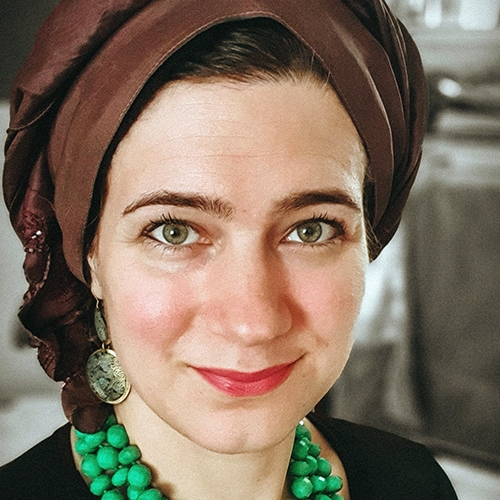

Zainab Yate is a Biomedical Ethicist, with a specialist interest in infant feeding. Zainab is Vice Chair and named qualitative lead on a paediatric flagged Research Ethics Committee Panel for the Health Research Authority (HRA) in the UK, reviewing research protocols for over a decade. Zainab's previous working background is in Public Health and Commissioning the National Health Service (NHS) in the UK. She had also been a volunteer breastfeeding peer supporter with the NHS for a number of years, is the owner-author of the resource site for mothers and healthcare practitioners on Breastfeeding / Nursing Aversion and Agitation and author of "When Breastfeeding Sucks".
Topic: Breastfeeding / Nursing Aversion and Agitation (BAA) in breastfeeding mothers - [View Abstract]
Topic: Navigating the Future: Bioethical Challenges in Anticipated Integration of AI in Lactation and Breastfeeding Services - [View Abstract]
Topic: Research Ethics & Infant Feeding: How to Utilise the Four 'D's of a Brief Assessment - [View Abstract]
Objective 1: Describe the phenomenon of Breastfeeding/Nursing Aversion is, as experienced by mothers
Objective 2: Discuss experiences Breastfeeding/Nursing Aversion when breastfeeding infants
Objective 3: Explain how to help mothers who experience Breastfeeding/Nursing Aversion
Aversion to breastfeeding or agitation while breastfeeding is known to occur in some women who breastfeed while pregnant, or who tandem feed a newborn and a toddler. However, it is a little researched area, and the paucity of published literature around breastfeeding aversion and agitation reveals a significant gap in the literature. My presentation presents the findings of an exploratory online survey that sheds light on what appears to be a commonly experienced phenomenon of aversion and agitation whilst breastfeeding, which varies in form, severity and duration. BAA is characterised by feelings of anger or rage, a skin crawling sensation and an urge to remove the suckling infant, but can also be feelings of agitation and irritability whilst the infant is latched. Mothers who experience BAA still continue to breastfeed, but have feelings of guilt and shame about BAA and are often confused about having feelings of BAA. Research is needed to understand the reasons for BAA, its causes, triggers and strategies to minimize the experience in breastfeeding mothers.


Dr. Satish Tiwari has worked as Professor of Pediatrics for 5- 6 years, and was responsible for the formation of the Indian Medico-Legal Ethics Association (Founder President), and the Human Milk Banking Association (India). He is a recipient of the Dr Nirmala Kesaree Oration 2012 and Dr NB Kumta Award 2015 for outstanding work in IYCF. He is a trainer in Human Lactation, breastfeeding, human milk banking, medico-legal issues etc. He has National, International publications and has provided editorial services for: a Textbook on Medico-legal Issues, Feeding Fundamentals, International J Gastroenterology, Hepatology, Transplant & Nutrition, and the Journal Indian Medico-Legal Ethics Association. He is Founder Editor-in-chief for the New Indian Journal Pediatrics. He is Founder Secretary Medico-legal group, Founder Secretary IYCF chapter IAP. He worked as President BPNI Maharashtra 04-06, Member Central Coordination Committee of BPNI (New Delhi) 06-08 and National Executive Indian Academy Pediatrics 07. He was a Postgraduate & Undergraduate examiner in Pediatrics and has been invited as a Guest Speaker on Infant feeding, breastfeeding, Medico-legal issues, HIV, Behavioral problems, etc.
Objective 1: Discuss various laws & enactments related to Breastfeeding & Infant feeding
Objective 2: Assess ethical issues related to Child Nutrition
Objective 3: Describe various legal & ethical ways to promote, protect and support breastfeeding & child nutrition
Food/nutrition is a basic need of individuals. Unethical, uncontrolled marketing practices have added to age-old confusions and misconceptions. Products are subtly portrayed as essential and convenient to “modern parents”.
Since the time that WHO/UNICEF has declared an International Code, many WHA resolutions have been resolved. Convention on the Rights of the Child accepts the right to enjoy a highest attainable standard. Innocenti Declaration was adopted on Protection, Promotion and Support of Breastfeeding.
It is important to support woman, by enacting legislation and adopting its enforcement and by providing adequate paid maternity benefits/leave.
The Indian government has enacted the Infant Milk Substitutes, Feeding Bottles & Infant Foods Act.
People should be vigilant enough to realize that legislations are not merely pieces of paper. Health workers have a moral and ethical responsibility to provide health education and report violations by becoming a “Watch-guard”.
Even after many legislations, some manufacturers are behaving as if these recommendations don’t affect them and have ignored or just given lip services.
Health workers, and the general population has a great influence on decision making. There is need to follow laws in spirit rather than words.
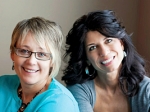

Cindy Leclerc and Jana Stockham are Registered Nurses and IBCLCs with over 20 years experience helping families get started with breastfeeding. In addition to hands on care, Cindy and Jana use technology to support families through their website (cindyandjana.com), online prenatal breastfeeding classes (simplybreastfeeding.ca) and iPhone app, NuuNest. Cindy is a strong believer in mother-to-mother support, helping to facilitate breastfeeding and postpartum depression support groups. She is intrigued by all things online and actively uses social media to promote breastfeeding. Jana has been trained as a Baby Friendly assessor and helped to coordinate the first Baby Friendly designation in Saskatchewan. She has a passion to help families with new babies and facilitates a group for breastfeeding moms.
Topic: Meeting your breastfeeding goals - [View Abstract]
Topic: Preventing the Plunge: Why the First 2 Weeks are Crucial for Breastfeeding Duration. - [View Abstract]
Objective 1: List the 4 most common reasons women discontinue breastfeeding in the first weeks of breastfeeding
Objective 2: Identify 3 strategies to help women meet their breastfeeding goals
Objective 3: List 2 breastfeeding myths that may undermine breastfeeding
Objective 4: Identify online resources providing evidence based breastfeeding information
The majority of women begin breastfeeding at birth. Within the first 6 weeks, however, breastfeeding rates fall dramatically. To help women hang in with breastfeeding beyond the first weeks, we must first understand why they struggle. Learn what the research is saying and what you can do in your practice to help women meet their breastfeeding goals. IBCLC’s who specialize in the early weeks of breastfeeding will share case examples based on over 20 years of working with breastfeeding families.


Amy Barron Smolinski holds an MA from Union Institute and University, where her thesis explored re-emerging Sacred Feminine manifestations in the lives of contemporary women. She is the Executive Director of Mom2Mom Global, a network of breastfeeding peer support, education, and advocacy for military families. She works with breastfeeding dyads in a variety of settings, from inpatient postpartum and NICU to home visits, telephone, and online consulting as an Advanced Lactation Consultant and Certified Lactation Counselor. Supporting breastfeeding families has shown her how each parent’s breastfeeding journey with each of her children is a reclamation of her connection to her inner wisdom and power. Amy is an actress, director, and professional voice artist in Germany, where she resides with her husband and four sons, all of whom breastfed to self-weaning.
Topic: When Tears Flow and Milk Doesn’t: Support Through Breastfeeding Grief - [View Abstract]
Objective 1: Describe the impact of the role lactation supporters play in the narrative of breastfeeding grief
Objective 2: Identify bereavement counseling techniques to offer comfort and reassurance to a parent experiencing breastfeeding grief
Objective 3: Identify techniques for self-awareness and self-care for the lactation supporter
Some women who initiate breastfeeding will not meet their duration goals. There are a number of factors that contribute to undesired weaning. For a woman who ceases breastfeeding before she desires to do so, it can be devastating. For the lactation professional or peer supporter, this can also feel like failure. Grief counseling and ethical principles are applicable to supporting a mother grieving the loss of the breastfeeding relationship she desired. This presentation uses case studies to address the questions of how breastfeeding supporters ethically and compassionately support mothers who end their breastfeeding journey before they wish to, how lactation professionals and peer supporters can manage our own feelings in these situations, and what are the ramifications of these cases as we continue to share accurate breastfeeding information in the face of media-driven culture in which infant feeding is loaded with guilt, shame, and fear.


Alex has been a lactation consultant in the Washington, DC area since 2010. In addition to running her private practice, Bethesda-Chevy Chase Lactation Consultants, Alex cares for breastfeeding moms and babies at Hirsch Pediatrics in Rockville, MD. After earning her master's in English Literature and teaching for several years, Alex met two extraordinary people that inspired her to enter the field of lactation: her daughters. Alex has worked at Inova Fairfax Hospital and Sibley Memorial Hospital as an in-patient lactation consultant. In 2015, she graduated summa cum laude from the University of Maryland Baltimore School of Nursing with a Bachelors of Science in Nursing. Alex is committed to increasing awareness for impaired mammary organ development (IMOD) and impaired mammary organ function (IMOF).
Objective 1: Describe normal thyroid function and how/why this is altered during stages of pregnancy and postpartum
Objective 2: Recognize the signs and symptoms of thyroid disorders in a lactating mother
Objective 3: Recognize the difference between normal and abnormal thyroid lab values during pregnancy and postpartum, as well as understanding their significance
Objective 4: Name at least three ways a mother could support a euthyroid state through dietary and/or herbal methods
Often overlooked and as elusive as the butterfly it resembles, the thyroid gland may lurk behind a number of breastfeeding difficulties, including low-supply, over-supply, and overt lactation failure. Recent research has revealed that thyroid disorders during pregnancy and postpartum are more common than previously thought. A substantial amount of our current professional discourse centers around tongue-tie, which occurs in anywhere from 4.2%-10.7% of babies, while thyroid disorders in lactating women may in fact be more prevalent than tongue tie, affecting anywhere from 6.7%-13.3% of women in the postpartum period. Even more alarming is that as many 50-80% of these cases may be missed by a woman’s healthcare provider. During this presentation, you will gain a basic understanding of how the thyroid gland functions and the various ways in which a dysfunctional thyroid can adversely affect lactation. You will also learn which signs and symptoms warrant a referral to a primary health care provider. We will review the latest evidence-based thyroid hormone reference values appropriate for a woman during pregnancy and postpartum so that, if your patient does undergo testing, you will feel confident discussing those results with her. Finally, we will discuss some herbal and dietary recommendations for improving thyroid function.


Paulina is the mother of three multicultural Latino children and Project Director for Lifespan Local. Paulina earned her BS in Psychology from the Pennsylvania State University, a MS in Organizational leadership from the University of Denver and is completing her PhD in Health and Behavioral Sciences at the University of Colorado - Denver. Paulina has over 18 years of experience working with families with young children. As a Maternal Child Health specialist for Jefferson County Public Health, she developed a NICU follow-up home visitation program and the pediatric emergency preparedness plan, co-founded and coordinated the Conectando Network (former Adelante Jeffco), established community navigation and lactation support groups focused on the Latino Spanish speaking community, and lead other initiatives to support leadership and partnerships among communities and organizations. During the COVID-19 pandemic, she managed the new program Whole Community Inclusion to ensure the pandemic response and recovery implementation included health equity practices that recognize the needs and the strengths of priority populations in the county. Her areas of current work include promoting perinatal and infant mental health along the continuum of care; building community capacity to navigate health and education systems; facilitating organizational change to embrace linguistic and culturally responsive practices; and establishing community-placed participatory programs to strengthen communities. She likes to be with people, learn from and with others, and connect passions for meaningful work.
Topic: From the NICU to the home: mother’s experiences - [View Abstract]
Topic: Leadership Skills in Lactation: Make Extraordinary Things Happen - [View Abstract]
Topic: Liderazgo en Lactancia - Para Alcanzar Metas Extraordinarias - [View Abstract]
Topic: Nursing A Preemie, Perspectives For Lactation Supporters and Professionals - [View Abstract]
Objective 1: Summarize three areas of concern reported by mothers regarding their transition from the NICU to home
Objective 2: To interpret the role of the lactation consultant as described by mothers
Objective 3: To identify protective factors in the mother-baby relationship as they transition from the NICU to the home
Objective 4: To discuss protective interventions to support families transitioning from the NICU to home
Lactation consultants would benefit from expanding their understanding of the impact of the NICU stay on the family; moreover, they would benefit from identifying the essential role they could play in assisting families to accomplish a positive, healthy, and smooth transition home.
Despite continuing efforts to reduce prematurely worldwide, a significant number of infants are born too early or in a fragile medical condition. Many of these infants experience a lengthy stay at the NICU. Lactation support varies across facilities, but families, especially mothers, develop strong connections with their lactation consultant. As one of their most consistent providers in the NICU, the lactation consultant has the opportunity to recognize families’ need for continuing support after discharge and strategies to protect the breastfeeding relationship, attachment, and mental health in the long term.


Cecília Tomori is Associate Professor and Director of Global Public Health and Community Health at the Johns Hopkins School of Nursing with a joint appointment at the Johns Hopkins Bloomberg School of Public Health. She is a Hungarian American anthropologist and public health scholar whose work investigates the structural and sociocultural drivers that shape health, illness and health inequities. Dr. Tomori is an internationally recognized expert on breastfeeding, infant sleep and maternal child health.
During the COVID-19 pandemic, she has supported numerous organizations focused on maternal child health and health equity and advocated for equitable pandemic policies. She has authored three books on breastfeeding and reproduction, and published numerous articles on a range of public health and anthropological topics.
Topic: Resolving Cultural Conflicts in Nighttime Breastfeeding and Infant Sleep - [View Abstract]
Objective 1: Describe the cultural origins of nighttime infant sleep recommendations
Objective 2: Identify key conflicts between infant sleep and breastfeeding recommendations
Objective 3: Discuss how parents negotiate these conflicts
Objective 4: Describe an integrated anthropological approach to nighttime breastfeeding and infant sleep
Nighttime breastfeeding and proximate mother-infant sleep play a crucial role in sustaining lactation but present challenges for parents in settings where solitary infant sleep is the norm, and bedsharing is viewed as controversial and inherently dangerous. While separate parent-child sleep arrangements are a relatively recent cultural invention, they have become the dominant cultural norm, which also shapes medical infant sleep guidance in the U.S. and other similar settings. Recent breastfeeding promotion efforts, however, conflict with these cultural and medical imperatives for separate sleep. As more parents breastfeed, they find themselves falling asleep next to their babies. Some may fall asleep on unsafe surfaces in their attempt to avoid bedsharing, while others regularly bedshare in secret to avoid social stigma and other repercussions. To ensure both safety and wellbeing for infants and families, an integrated approach to nighttime breastfeeding and infant sleep will be recommended that incorporates evolutionary and cross-cultural perspectives.


Dia has written and/or edited over a dozen books for adults and children. Her passions in life include promoting the concepts and practices of attachment parenting, breastfeeding and safe infant sleep. She is founder and president of two publishing houses—Platypus Media and Science, Naturally! Their books have won numerous awards and have been translated into Spanish, Dutch, Hebrew, Chinese, Russian, Turkish, French and Korean. Dia has led workshops at healthcare, education and parenting conferences across the country. She is the mother of three adult children and lives in Washington, DC.
Objective 1: Describe the phenomenon of Breastfeeding / Nursing Aversion is, as experienced by mothers
Objective 2: Discuss the advantages of a breastfed baby over a formula-fed baby in early literacy
Objective 3: Describe how a breastfeeding support worker can promote literacy
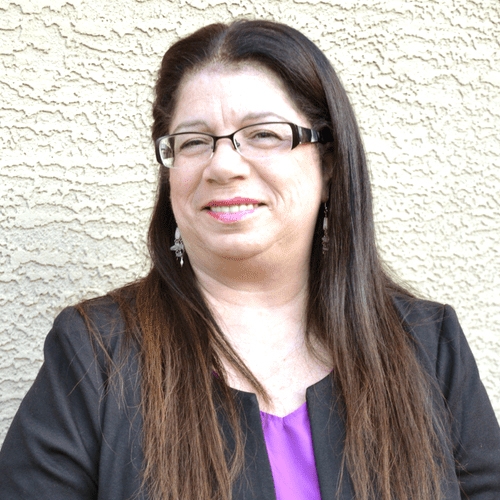

Lori J. Isenstadt, IBCLC, CCE, CBD, began her IBCLC career in 2 large hospitals and a local breastfeeding clinic. In 2007, she opened her practice, All About Breastfeeding, offering private consultations, and breastfeeding classes. Her expertise ranges from basic breastfeeding through the most complicated of breastfeeding challenges. In the last 30 years, Lori has taught breastfeeding classes to over 8000 parents where she focuses on what they should expect in the early days of breastfeeding. Lori is a member of Toastmasters International and enjoys speaking about mothering and breastfeeding. Lori is the host of All About Breastfeeding, a podcast where she interviews mothers, authors, researchers and physicians about topics related to breastfeeding. Lori believes that breastfeeding is a family affair. To help support her mission to educate families as well as corporations and business owners about breastfeeding, she has recently released the most comprehensive audio breastfeeding masterclass. She has produced over 300 shows many of which focus on breastfeeding educational topics. On a personal note, Lori resides in Phoenix, AZ is married to Alan for 38 years and is the mother of three adult children. Lori can be reached by email: [email protected] and website: www.aabreastfeeding.com
Topic: The Good news about delivering bad news: how to present difficult information to parents - [View Abstract]
Topic: The Original Foster-Mother Were Wet Nurses - [View Abstract]
Objective 1: Describe the phenomenon of Breastfeeding/Nursing Aversion is, as experienced by mothers
Objective 2: Describe the history and development of alternative feeding instruments
Objective 3: Explain why more mothers are showing an interest in wet/cross nursing
Objective 4: Explain why and how we can best support mothers who want to or who are practicing wet/cross nursing
The historical evolution of infant feeding includes direct breastfeeding, wet nursing and bottlefeeding. Before the invention of bottles/ vessels to feed babies, wet nursing was the safest and most common alternative way to feed a baby. As bottles and nipples were developed, scientific advancement improved formulas, wet nursing fell out of favor. It gradually went from being widely accepted as the most normal way to feed a baby to where we currently are as a modern society. It is negatively seen as being weird and risky behavior. When mothers do not breastfeed or give their babies human milk, they use formula to feed their babies. Given the current knowledge of lack of complete nutrition formula has more mothers are showing an interest and actively pursuing wet/cross nursing. This presentation will help us understand the history of wet nursing and offer reasons to support, advocate and be encouraging to mothers who want to participate in the practice of wet/cross nursing.
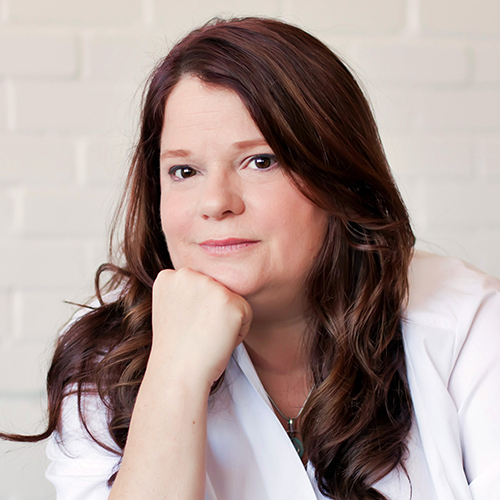

Barbara D. Robertson, IBCLC, has been involved in education for over 34 years. She received a Bachelor’s degree in Elementary Education in 1988 and her Master’s in Education in 1995. Barbara left teaching elementary students in 1995 to raise her two children. Barbara is now the Director of The Breastfeeding Center of Ann Arbor and of the brand new business LactaLearning.
The Breastfeeding Center of Ann Arbor will still continue to serve breast/chestfeeding families and now LactaLearning will be dedicated to all of Barbara’s professional lactation trainings. Barbara has developed two 95 hour professional lactation training, a group training and a completely self study training with Nancy Mohrbacher. Barbara’s idea of creating professional book groups has exploded with her hosting Making More Milk with Lisa Marasco, Supporting Sucking Skills with Cathy Watson Genna, Breastfeeding Answers, 2nd Edition with Nancy Mohrbacher, and new for the fall, Safe Infant Sleep with Dr. James McKenna. Barbara will be hosting a one day online conference in the fall with Lisa Marasco and Cathy Watson Genna using all of her tech savvy skills to make this a one of a kind experience. Barbara is also a speaker for hire on a wide variety of topics including Motivational Interviewing. Barbara volunteered for the United States Lactation Consultation Association as the Director of Professional Development for 4.5 years.
She just retired as Associate Editor for Clinical Lactation, a journal she helped create for USLCA. Barbara has free podcasts, a blog, and Youtube videos which can all be found on her websites lactalearning.com and bfcaa.com. She has written many articles as well. She loves working with parents and babies, helping them with breast/chestfeeding problems in whatever way she can.
Topic: Breastfeeding: Baby’s First Milestone - [View Abstract]
Topic: Clinical Assessment and Management of Low Milk Production - [View Abstract]
Topic: Deconstructing Online Messaging: Ethical Considerations - [View Abstract]
Topic: Milk Sharing and Milk Banking: Building Knowledge for Better Outcomes - [View Abstract]
Topic: The Baby's Not Gaining Weight! Now What? - [View Abstract]
Topic: The Great Nipple Shield Debate - [View Abstract]
Objective 1: The participant will be able to state one other milestone for young children and three possible support systems that are in place to help mitigate any delays in reaching that milestone
Objective 2: The participant will be able to differentiate between mother based, infant based, and dyad based barriers to successful breastfeeding
Objective 3: The participant will be able to provide three examples of mother based barriers to successful breastfeeding and possible solutions
Objective 4: The participant will be able state five reasons, that are infant based, that could impact successful breastfeeding and possible solutions
Breastfeeding is widely acknowledged as being the healthiest way to feed an infant for at least two years. In the United States of America, the CDC 2014 Breastfeeding Report Card states that 79.2% of mothers start out breastfeeding. However, as the babies get older, these numbers plummet. Only 49.4% of these babies are receiving any breastmilk by 6 months of age. We know from the literature that the primary reasons mothers stop breastfeeding in these early months are pain and worrying about their breastmilk supply. These are problems with solutions if the proper support is in place. Why is this support lacking? Is it because for all of the talk, “breast is best”, the importance of breastfeeding is not really valued? What if successful breastfeeding was reframed into a milestone? Baby’s first milestone? This presentation will explore other milestones, walking, talking, and learning to read, and what happens if babies and young children are not reaching these markers in a reasonable time frame. What support systems are in place to help these milestones be achieved if babies are faltering? The possible reasons for a baby not being able to breastfeeding and possible solutions will then be examined from the lens of having proper support systems in place.


Joy MacTavish, MA, IBCLC, RLC is an International Board Certified Lactation Consultant and certified Holistic Sleep Coach focusing on the intersections of infant feeding, sleep, and family well-being. Through her business, Sound Beginnings, she provides compassionate and evidence-based support to families in the greater Seattle area, and virtually everywhere else. She entered the perinatal field in 2007 as birth and postpartum doula, and childbirth and parenting educator. Joy holds a Master of Arts in Cultural Studies, graduate certificate in Gender, Women and Sexuality Studies, and two Bachelors degrees from the University of Washington. She enjoys combining her academic background, analytical skills, and passion for social justice into her personal and professional endeavors. Joy serves as an Advisory Committee Member and guest speaker for the GOLD Lactation Academy. When not working or learning, she can be found homeschooling, building LEGO with her children, or dreaming up her next big adventure.
Topic: Full-Term Breastfeeding/Chestfeeding: Benefits, Considerations, and Ways to Offer Support - [View Abstract]
Topic: Mindful Breastfeeding: How Lactation Professionals Can Support Calm and Connection - [View Abstract]
Topic: Sending Reports: What’s in it for IBCLCs? - [View Abstract]
Topic: Supporting Clients Facing Fertility Treatment - [View Abstract]
Topic: The Intersection Between Lactation, Sleep, and Family Well-Being - [View Abstract]
Topic: Weaning: Supporting Families Stopping Lactation and/or Ending Their Breastfeeding/Chestfeeding Relationship - [View Abstract]
Objective 1: Describe the ethical considerations of reporting accurately and completely to other members of the healthcare team
Objective 2: Identify at least three (3) benefits to the client of the IBCLC writing and sending reports to health care providers
Objective 3: Identify at least three (3) benefits to the IBCLC of writing and sending reports to health care providers
Most lactation professionals love client interactions, but only send reports to health care providers out of a sense of duty. But writing and sending reports to our client’s health care providers can be more just an administrative task. Yes, it complies with IBLCE’s Code of Ethics to “Principle 4: Report accurately and completely to other members of the healthcare team” but it can also increase collaboration, improve client outcomes, and grow your practice.
This presentation seeks to reframe the process of writing and sending reports from a dreaded task to a clinical, ethical, and holistic way of supporting our clients while positively positioning ourselves as allied health professionals. Beyond the ethics (yes or no) and practicalities ("S.O.A.P." or not), a report to a health care provider is a source of communication about the consultation as well as marketing about your clinical skill, role in the client’s lactation experience, and lactation practice. With a combination of the why and how, this presentation outlines the ways in which reports to health care providers can be beneficial to the client, the health care provider, and the IBCLC, as well as devoting some time to specific strategies that lactation consultants can implement to streamline the process of sending reports so that we can get to the next client.


Judy Terwilliger is a Clinical RN Therapist with Pediatric experience for over 30 years. As lead therapist, researcher and educator in her proprietary form of functional mobility therapy (Functional Bowen™), she works with allied health care providers in the resolve of hidden structural barrier challenges for infants and children. Her collaborative, integrative team care approach sees many successes. She is committed to equipping families with the tools necessary in support of breastfeeding and enabling parents to participate in the resolve of their children’s structural challenges. She is a member of the National Society of Pediatric Nurses and was a nominee in the 2013 Clinical Excellence in Practice Award. She has been a speaker at the Northern California Placer County Breastfeeding Coalition, Imperial Valley Breastfeeding Summit and presented at the 2016 California Breastfeeding Coalition. Her professional memberships include: ABM Network, International Pediatric Integrative Medicine Network, IATP, and Breastfeeding USA. Judy is a licensed continuing education provider for the National Certification Board for Therapeutic Massage & Bodywork, California Board of Registered Nurses, The California Physical Therapy Association, and the International Board of Lactation Consultant Examiners.
Objective 1: Identify the correlation between higher than normal muscle tension (tonus) and the often structurally related breastfeeding challenges in the mother/infant dyad
Objective 2: Identify at least three predisposing factors in a “normal” pregnancy/delivery that can be identified as hidden barriers to functional mobility, enabling them to develop a plan of care that is more successful
Objective 3: Assess for structural manifestations (how they present), enabling parents in the instruction of self-help techniques to assist in resolves of these noted breastfeeding barriers
Objective 4: Identify when and where to make referral to professional resources to assist in the resolve of related breastfeeding barriers, utilizing a more comprehensive approach in breastfeeding support through integration of community resources
This lecture/course is intended to familiarize the medical and allied health community in the recognition of the often-overlooked muscle-related structural barriers to breastfeeding. It provides a discussion of clues to the predisposing factors of these barriers and explores their affect on infant "functional mobility" as it relates to the achievement of successful breastfeeding. It is intended to improve the clinician’s assessment skills as they work with the mother/infant dyad in resolving breastfeeding difficulties/dysfunctions by development of insight into these often hidden and profoundly destructive structural manifestations. Recognition of these barriers with an emphasis on self-help techniques and when/who to refer parents/caregivers to for help, together with how to best meet their teaching/training needs across cultural barriers, is discussed. The ultimate purpose is the achievement of insight to improve the clinician’s evaluation process, better enabling them to promote, enhance and even save the breastfeeding experience of the families served.
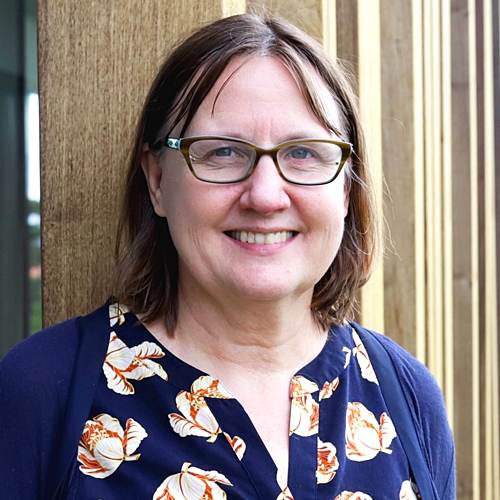

Ruth Lucas, PhD, RNC, CLS, received her Bachelor of Science in Nursing from George Mason University (1986) and her Doctor of Philosophy of Science (2011) from the University of Illinois at Chicago. Based on 20 years of supporting women and infants to initiate breastfeeding, her research focuses on the biobehavioral mechanisms of breastfeeding, such as breast and nipple pain. Dr. Lucas and her team conducted a pilot randomized control trial (RCT) as part of the Center for Accelerating Precision Pain Self- Management (CAPPS-M) (P20NR016605). The pilot RCT tested the feasibility, acceptability, and efficacy of a breastfeeding self-management (BSM) intervention for breast and nipple pain during breastfeeding and found the BSM intervention significantly reduced breast and nipple pain and is associated with pain sensitivity polymorphisms. Her published work describes management of pain during breastfeeding, a clinical indictor of infant breastfeeding behaviors, and a biomedical device to measure breastfeeding in real time.
Topic: Promoting Self-Management of Breast and Nipple Pain for Women During Breastfeeding - [View Abstract]
Objective 1: Compare and contrast neurodevelopmental difference in infants’ latch and SuPPRT during nonnutritive sucking, breast and bottle feeding
Objective 2: Describe the relationship between infants’ latch and SuPPRT during bottle feeding and later neurodevelopment
Objective 3: Evaluate the evidence to consider infants’ latch and SuPPRT during breastfeeding to be a neurodevelopmental measure
Infant feeding behavior is a complex neurodevelopment behavior. Infant feeding is compressed of infants’ latch and SuPPRT (sucking pressure pattern regulated over time) in both bottle and breastfeeding sessions. In preterm bottle feeding infants, the regulation of these two components is a measure of neurodevelopment. However, infants’ latch and SuPPRT in breastfeeding has not been explored. Dr. Lucas will review infants’ latch and SuPPRT during bottle and breastfeeding and explore how these differences make breastfeeding a more sensitive newborn neurodevelopmental measure. Finally, Dr. Lucas will propose why we should consider differences in infant latch and SuPPRT to be a neurodevelopmental infant measure.
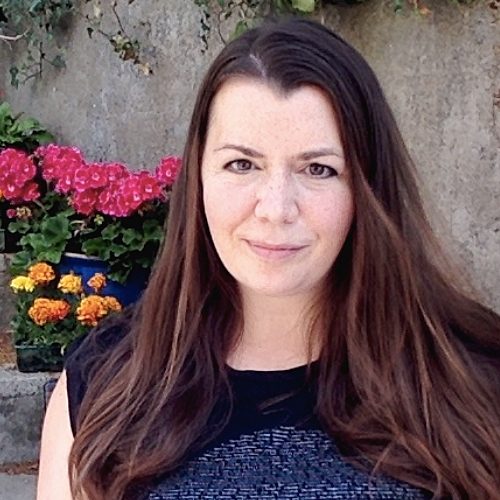

Professor Amy Brown is based in the Department of Public Health, Policy and Social Sciences at Swansea University in the UK. With a background in psychology, she has spent the last thirteen years exploring psychological, cultural and societal influences upon infant feeding decisions in the first year. Her research seeks to understand how we can shift our perception of how babies are fed away from an individual mothering issue to a wider public health problem – with societal level solutions. Dr Brown has published over 60 papers exploring the barriers women face in feeding their baby during the first year. She is a mother to three human children and three book babies: Breastfeeding Uncovered: Who really decides how we feed our babies, Why starting solids matters, and The Positive Breastfeeding Book: Everything you need to feed your baby with confidence. She is a regular blogger, aiming to change the way we think about breastfeeding, mothering and caring for our babies.
Topic: Breastfeeding Trauma: How Can We Recognise and Support Mothers Who Wanted to Breastfeed but Were Unable to Meet Their Goals? - [View Abstract]
Topic: How Can We Better Support Mothers Don’t Meet Their Breastfeeding Goals? - [View Abstract]
Topic: What Do Normal Infant Feeding Patterns Really Look Like? - [View Abstract]
Objective 1: Describe the importance of responsive breastfeeding
Objective 2: Analyze the complexity of human decision making around health
Objective 3: Describe the influence of psychological, cultural, and societal barriers to responsive feeding and therefore breastfeeding duration
The majority of women should be able to breastfeed, but elements of their experience are ultimately stopping them from doing so. Breastfeeding works best when done responsively but many psychological, social and cultural factors work directly or more subtly against responsive feeding, meaning that many mothers experience difficulties with breastfeeding which can lead to premature weaning. These factors can include separation of mother and baby, a lack of understanding of breast milk production, public attitudes and wider pressures of motherhood to name a few. If we want to support mothers to breastfeed we must understand and target these wider factors to create a supportive breastfeeding environment. It is important however that our approaches to breastfeeding promotion and education are perceived positively by mothers in order for them to be effective. In this presentation I’ll be addressing the common barriers to breastfeeding and their impact, along with new research that looks at how mothers perceive common breastfeeding education messaging and what this research tells us about how we can change our approach to ensure our messages have the intended impact.


Karleen Gribble (BRurSc, PhD) is an Adjunct Associate Professor in the School of Nursing and Midwifery at Western Sydney University.
Her interests include infant and young child feeding in emergencies, marketing of breastmilk substitutes, parenting and care of maltreated children, child-caregiver and caregiver-child attachment, adoption reform, and treatment of infants and young children within the child protection, immigration detention, and criminal justice systems.
She has published research on these subjects in peer-reviewed journals, provided media commentary, contributed to government enquiries, provided expert opinion for courts, and engaged in training of health professionals, social workers, and humanitarian workers on these subjects.
Karleen is an Australian Breastfeeding Association Community Educator and Breastfeeding Counsellor. Since 2010 she has been a member of the Infant and Young Child Feeding in Emergencies Core Group and has been at the forefront of the development of policy, training and research in the area of infant and young child feeding in emergencies.
Topic: Infant and Young Child Feeding in Emergencies: Background, Best Practice, and What You Can Do - [View Abstract]
Topic: Milk Sharing: Comparative Risks and Biomedical Ethics - [View Abstract]
Objective 1: Identify the challenges associated with IYCF-E
Objective 2: Identify the role of infant feeding specialists in emergencies
Objective 3: Identify how to prepare to support mothers in emergencies in their context
In any emergency, infants and young children are particularly vulnerable. Providing appropriate aid is vital to ensure that children have the best chance of surviving. This presentation will describe why infants and young children are at increased risk during times of crisis and outline how aid can support, or sometimes undermine the health of infants and young children. Detail on instruments to support appropriate infant and young child feeding in emergencies will be provided, along with information to assist participants in advocating for appropriate infant and young child feeding in emergencies in their context.


Brandi Gates-Burgess is a Lactation Consultant at Highland Hospital, Community Engagement specialist for the MILK Research Lab, serves on the Community Advisory Board of the UCSF Preterm Birth Initiative, and Co-chairs The Breastfeeding Cultural Outreach Taskforce (BCOT). Recently, Brandi transitioned from her 16-year career providing lactation support to families of the California WIC Program and decided to live her dream. She started her non-profit organization Breast Friends Lactation Support Services where she provides group lactation education and support to Black Families in the Bay Area. She is a mother to 4 breastfed children, wife and world traveler.
Topic: The Power of Mentorship - [View Abstract]
Objective 1: Describe effective ways to engage the African American Community around breastfeeding
Objective 2: Assess the importance of providing mentorship opportunities for the next generation of lactation support
Objective 3: Discuss how to outreach and share information about breastfeeding to community partners who promote encourage breastfeeding in your County
In Alameda County, Black women are initiating exclusive breastfeeding, but only ~15% remain breastfeeding by 3 months. For impoverished Black women, especially those in their teen years or who may have less than high school education, these numbers are even lower (9-12%). There is minimum breastfeeding support for black families.
When Black mothers in West Oakland who received peer and professional breastfeeding support through Breast Friends, exclusive breastfeeding at 3 months rose to 63%. This project expanded the Breast Friends model to East Oakland while also training 12 new peer counselors (including 1 father), 24 new group facilitators, and enhancing breastfeeding messaging in the California Black Infant Health program. The project surpassed our expectations. 5 out of the 12 trained peer counselors are now working in other community organizations as Community health outreach worker, peer counselors, doulas and WIC staff.
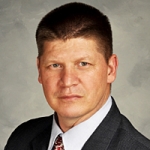

Tom Johnston is unique as a midwife and lactation consultant and the father of eight breastfed children. Recently retired after 27 years in the US Army, he is now an Assistant Professor of Nursing at Methodist University where he teaches, among other things, Maternal-Child Nursing and Nutrition. You may have heard him at a number of conferences at the national level, to include the Association of Woman’s Health and Neonatal Nurses (AWHONN), the International Lactation Consultant’s Association (ILCA), or perhaps at dozens of other conferences across the country. In his written work he routinely addresses fatherhood and the role of the father in the breastfeeding relationship and has authored a chapter on the role of the father in breastfeeding for “Breastfeeding in Combat Boots: A survival guide to breastfeeding in the military”.
Topic: Human Milk Synthesis: Just When You Thought You Knew - [View Abstract]
Topic: New Insights Into the Maternal Child Microbiome - [View Abstract]
Topic: Promoting Provider Self-Efficacy in Breastfeeding Support - [View Abstract]
Topic: Still Swimming Upstream: Breastfeeding in a Formula Feeding World - [View Abstract]
Topic: The Making of Human Milk: A Clinical Update - [View Abstract]
Topic: The Maternal-Child Microbiome or: The “Oro-boobular axis” - [View Abstract]
Topic: The Maternal-Child Microbiome or: The “Oro-boobular axis” - [View Abstract]
Topic: The Perinatal Microbiome - [View Abstract]
Topic: Using Evidence to Develop Clinical Lactation Skills - [View Abstract]
Objective 1: Identify the Maternal-Newborn Microbiome
Objective 2: Discuss the value of the microbiome and its effect on wellness
Objective 3: Identify implications of the microbiome and dysbiosis
Did you know that a mother who breastfeeds her child is more likely to “match” as an organ donor than a mother who does not breastfeed her child? How does that happen? The answer may lie in the Maternal-Newborn Microbiome, AKA “The Oro-boobular” axis. The scientific world is exploding with excitement over the discovery of the microbiome. While it appears clear that a suckling infant’s intestinal microbiome communicates with the mother’s lactocyte and perhaps beyond, little is known about the effects of this communication in practical terms. This presentation will review what is known and attempt to explain what it means, both now and in the future.


Jake Marcus, J.D., is the nation’s foremost expert on breastfeeding law. Formerly Staff Attorney at a non-profit assisting survivors of domestic violence, her current private practice focuses on small businesses (including the business issues of health care practitioners such as IBCLCs and midwives) and healthcare. She was Politics Editor at Mothering magazine until it ceased publication in April of 2011. She was a member of the Legal Advisory Council to La Leche League International. She created and maintains BreastfeedingLaw.com.
Objective 1: Identify a legal problem that may be entwined in a medical problem
Objective 2: Avoid triggering and inappropriate language and behavior when with a women in the legal system
Objective 3: Give clients resources and references for dealing with legal problems
Breastfeeding women find themselves in need of assistance in a wide variety of legal contexts. This session reviews the options available to lactating women in custody disputes, as criminal defendants, as witnesses, when called for jury duty, and as immigration detainees.


Christy Jo has over 25 years of teaching experience. She is passionate about teaching in ways that simplify learning. She has been awarded the United States Presidential Volunteer Award for her community service, the Phyllis Klaus Founder's Award for her contribution to the Mother/Baby bond and the Above and Beyond Award for innovative projects that exemplify the mission of Public Health. She has also been named Lactation Educator Faculty of the Year from Childbirth and Postpartum Professionals Association and earned their Visionary Award in 2015. Christy Jo is the author of Mommy Feeds Baby and co-author of Making Milk. She created the Grow Our Own Lactation Consultant/IBCLC Prep Course which has been used to train hundreds of students to become Lactation Consultants. She currently resides in California with her husband and three children. She continues to serve her community as a birth doula, Private Practice IBCLC, Health Educator for Public Health, and faculty for the CAPPA CLE© and Childbirth Educator Programs.
Topic: Enhanced Counseling Skills for the Lactation Educator - [View Abstract]
Topic: Expanding Our Audience to Gain Greater Appreciation and Acceptance of Breastfeeding - [View Abstract]
Topic: Sharing Your Wisdom: From Abstract Idea to Awesome Prenatal Breastfeeding Class - [View Abstract]
Topic: The Art of Communication: Simplifying Birth and Breastfeeding - [View Abstract]
Objective 1: Identify at least 3 perinatal professionals that should collaborate to support clients.
Objective 2: Name two organizations that offer peer support.
Objective 3: Identify specifically where one falls on the Continuum of Care
Promoting collaborations among caregivers and healthcare providers to ensure consistent and continual breastfeeding support.
This talk uses humor and scenarios to point out the necessity that those entrusted with a family’s care be professional, inclusive and open in order to provide the best support possible.


Joy MacTavish, MA, IBCLC, RLC is an International Board Certified Lactation Consultant and certified Holistic Sleep Coach focusing on the intersections of infant feeding, sleep, and family well-being. Through her business, Sound Beginnings, she provides compassionate and evidence-based support to families in the greater Seattle area, and virtually everywhere else. She entered the perinatal field in 2007 as birth and postpartum doula, and childbirth and parenting educator. Joy holds a Master of Arts in Cultural Studies, graduate certificate in Gender, Women and Sexuality Studies, and two Bachelors degrees from the University of Washington. She enjoys combining her academic background, analytical skills, and passion for social justice into her personal and professional endeavors. Joy serves as an Advisory Committee Member and guest speaker for the GOLD Lactation Academy. When not working or learning, she can be found homeschooling, building LEGO with her children, or dreaming up her next big adventure.
Topic: Full-Term Breastfeeding/Chestfeeding: Benefits, Considerations, and Ways to Offer Support - [View Abstract]
Topic: Mindful Breastfeeding: How Lactation Professionals Can Support Calm and Connection - [View Abstract]
Topic: Sending Reports: What’s in it for IBCLCs? - [View Abstract]
Topic: Supporting Clients Facing Fertility Treatment - [View Abstract]
Topic: The Intersection Between Lactation, Sleep, and Family Well-Being - [View Abstract]
Topic: Weaning: Supporting Families Stopping Lactation and/or Ending Their Breastfeeding/Chestfeeding Relationship - [View Abstract]
Objective 1: Explain the ways in which mindfulness practices can be supportive of the mental, emotional, and physiologic state of breastfeeding parents
Objective 2: Describe, in general terms, how mindfulness can benefit postpartum parents, their babies, and breastfeeding
Objective 3: Share at least three (3) strategies to increase mindfulness during breastfeeding
The age-old practice of mindfulness meditation has increased in popularity across the globe over the past four decades and gained traction within the psychological and medical fields. Mindfulness centers on non-judgmental awareness of one’s bodily sensations, thoughts, and emotions in the present moment. It has been scientifically shown to reduce stress, chronic pain, medical and psychological symptoms, and enhance immune function. Mindfulness practices often focus on psychobiological processes, which makes them well suited as in intervention during the perinatal period, and even more specifically breastfeeding. This presentation outlines the ways in which mindfulness can positively impact lactation, during its normal course and especially when there are challenges. As lactation professionals who clinically and holistically support clients, it is beneficial to be able to share mindfulness strategies that can serve as a bridge between the mental, emotional, and physiological realms. Through a greater understanding of the practical aspects of mindfulness, gentle interventions can be incorporated into each feeding session. By supporting calm and connection within the parent and between the parent and infant, the experience of breastfeeding can be enhanced.
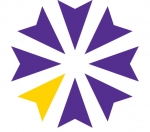

During a time when lactation professionals are facing unprecedented negativity on top of the usual challenges, it’s easy to get drawn into the conflict or to start wondering if what we do makes a difference. How do we lift one another up to maintain a positive focus on using our knowledge and skills to guide families who are feeling scared and confused? How do we set aside our biases to make sure we’re listening to all sides? How do we connect and collaborate with other professions to expand the network of support for new families? This panel discussion focuses on answering those questions and providing steps that can be taken to promote collaboration both within the field of lactation and with other members of the health care team to improve breastfeeding knowledge translation and mobilization. This is your chance to hear from Dr. Amy Brown, Christy Jo Hendricks and Joy MacTavish as they share their thoughts on this hot topic during our panel discussion titled “Lifting up the Lactation Profession”.


Kiddada Green is the founding executive director of Black Mothers’ Breastfeeding Association, co-‐creator of Black Breastfeeding Week, founding member of the National Association of Professional and Peer Lactation Supporters of Color, lead consultant for the First Food Friendly Community Initiative, and an esteemed member of the inaugural class of the W.K. Kellogg Foundation’s Community Leadership Network Fellowship Program. She is committed to supporting families, and training maternal child health professionals on culturally appropriate breastfeeding support. As an expert in community-‐centered approaches, she put forth recommendations for The U.S. Surgeon General’s Call to Action to Support Breastfeeding, has been featured in Ebony Magazine, and is a program reviewer for the American Public Health Association. She is a published writer for Breastfeeding Medicine and an avid learner. Kiddada holds a Bachelor’s Degree from Michigan State University and a Master’s Degree in the Art of Teaching from Oakland University.
Objective 1: Define "community breastfeeding"
Objective 2: Describe "active community outreach and support"
Objective 3: Illustrate ways to support, protect and promote breastfeeding within the community
This presentation provides clear and concise methods for maternal-‐child-‐health professionals and home visiting programs to become active supporters of breastfeeding families. The information shared is both for the novice and the experienced. Learn ways to build partnerships, improve advocacy and set organizational policies that are supportive of increased breastfeeding rates.


I am a wife and mother of two breastfed children. I was a general practitioner and am currently more focused on helping mothers to breastfeed. I work at Puri Cinere Hospital and Kemang Medical Care Women and Children as a lactation counselor. I currently on leave due to accompany my husband school in United State for his PhD programs. Since 2009, I've been helping mothers who have difficulties breastfeeding. It is a delight when we meet during tough times, then met again once their breastfed child are big and smart, and most importantly successfully breastfed. My desire is to help mothers to breastfed wherever I live in this world.
Objective 1: Describe Indonesian culture and it relation to doctor-patient communication
Objective 2: Discuss the lactation clinic services and helpline services which has been established in Puri Cinere Hospital, Depok, West Java, Indonesia
Objective 3: Describe problems which could be managed via helpline
Good doctor–patient communication is essential for positive health care outcomes. Ideal doctor–patient communication generally is reflected in a partnership communication style. However, in Southeast Asian settings, we often see a more one-way style with little input from the patient.
Helpline services is breaking the ice, and is considered a new option modality for patients in Indonesia. The ease in contacting medical professionals through phone and text messages seems more comfortable, personal and inexpensive.
Breastfeeding support via a helpline helps mother to feel reassured, confident and more determined to continue breastfeeding, and in majority of occasions resolves their particular concerns.
Lactation Clinic in Puri Cinere Hospital, Depok, West Java, Indonesia was established in August 2011 and operated a helpline since the beginning of its establishment. Helpline service is open 24 hours daily, through phone, text messages, whatsapp, or blackberry messenger directly to doctors who are also breastfeeding counselors. There are six doctors who take turns every month to receive calls and reply to messages. Helpline numbers are distributed to patients during post natal rounds or at patients doctors appointments in lactation clinic.
A longitudinal study conducted in March to December 2014 shows 202 helpline cases in 9 months. There were 29 cases (14%) questioning EBM handling, 24 cases (12%) asking about complementary feeding, 19 cases (9%) of infant stool, 19 cases (9%) medication and mother's milk, 15 cases (7%) frenotomy after care and other various problems. 63% cases were successful managed via helpline, and 37% cases were referred to the Lactation Clinic to get further help.
There were many cases resolved through helpline calls and messages. High success rate of helpline management shows that helpline program is effective to help mothers and resolved their particular concerns; especially in Indonesia.


Heidi Lam is a private practice IBCLC and La Leche League Leader in Hong Kong. She tandem nurse her two daughters and have more then 8 years of breastfeeding experience. She was accredited as La Leche League Leader in 2009. In 2010, to she was awarded the Trudi Szallasi Memorial Scholarship from Health-e-learning.com to complete a one year course on lactation medicine. In 2011, she was qualified as International Board Certified Lactation Consultant. Her job focus mainly on home visits to clients and running breastfeeding classes. Heidi is also active in promoting breastfeeding and was often interviewed by parenting magazines and other media in Hong Kong. Heidi was a Hong Kong delegate to spoke at the Susuibu.com International Lactation Conference 2010 in Malaysia. She also speaks regularly at local breastfeeding support groups.
Objective 1: Describe breastfeeding in Hong Kong
Objective 2: Describe what are the major breastfeeding challenges
Objective 3: Describe Chinese wisdom of confinement practices
Breastfeeding rates upon discharge is rising in Hong Kong over the past 20 years. Breastfeeding has become more of a topic than ever before. However, it is still very common to have early introduction of formula and exclusive breastfeeding rate is still low. Most private hospitals do not allow 24 hours room in. Many mothers need to go back to work when the baby is only six weeks old. In Hong Kong, it is very common to practice a confinement period after birth. This traditional Chinese wisdom has many benefits for the mothers and babies. Mothers of other cultures can also make use of some of the practices to benefit themselves.


Anna has been working as a midwife since 2009. From the very beginning of her studies she has been fascinated with breastfeeding. During her studies for her Bachelor's and Master's degrees in Midwifery, her main area of interest was promotion and support for breastfeeding among women. Anna's interest in breastfeeding turned into a passion that led her to pursue the Polish Certification of Lactation Consultant and she is working toward certification as an IBCLC. She opened a private practice and a support group for local women in Krakow (cracko). Anna’s Interest and passion for lactation and breastfeeding have deepened during her current PhD studies. She is a PhD candidate in 2018 at University Medical College and is the coordinator of the Krakow Human Milk Bank.
Her scientific area of expertise: change in milk composition (macronutrients), human microbiota during pregnancy, lactation as well as tandem breastfeeding. Her research is carried out in the Department of Obstetrics and Perinatology. Anna is the author of many lectures and workshops for students of midwifery and medicine in area of breastfeeding, lactation and the variation of composition of human milk. Since 2016 she has been popularizing the science of human lactation in Poland and she is always finding new ways to promote and support breastfeeding women. In her spare time she practices meditation, yin yoga and is learning how to dance rock and roll.
Topic: Rusty Pipe Syndrome: A Case Report From Poland - [View Abstract]
Objective 1: Describe Rusty Pipe Syndrome
Objective 2: List how to recognize the syndrome
Objective 3: Discuss how to support breastfeeding women with Rusty Pipe Syndrome
Bloody nipple discharge is an unusual experience during lactation for both the mother and her attending physicians. Painless bleeding from the breasts in the early post-partum period can be a physiological condition called a rusty pipe syndrome. This report describes the case of bilateral bloody nipple discharge that started after caesarean section and subsequently ceased within a few days.
Natural breastfeeding is the best way of nourishing newborns and infants. The process of breast milk production starts as early as between weeks 16 and 22 of pregnancy and colostrum can appear from the nipple in the following weeks. Milk containing blood can be a cause of concern for the mother and her physician. The reasons can be various; however not all of them would be caused by bleeding from the glandular tissue.
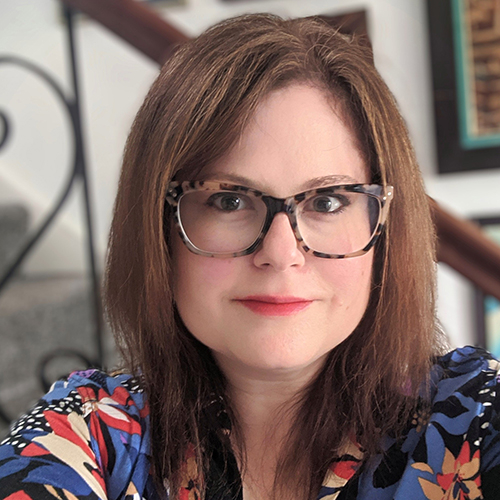

Tamara Drenttel Brand holds an MA in Near Eastern Studies from the University of Arizona and a Master’s in Public Health (MPH) from the American University of Beirut. She spent 10 years in the Middle East, where she worked as a public health practitioner, infant and maternal health consultant and an IBCLC. She has supported breastfeeding dyads from all over the world both in private practice and as a volunteer. In 2011, she founded and still actively facilitates “Mama 2 Mama Beirut Breastfeeding Support,” the largest breastfeeding peer support network in the Middle East (currently at 25k+ members). Additionally, she founded Galactablog, a professional group for lactation specialists and those aspiring-to-be (currently at 4.7k+ members) and has authored several articles for La Leche League’s monthly leader publications in both the Middle East and Ireland.
She is currently an international speaker on the topics dealing with breastfeeding in the Middle East, innovative lactation teaching strategies, working in resource-scarce settings, providing culturally sensitive lactation support, developing and implementing peer counselor training programs, mast cell disease and other related topics. Due to her own chronic health conditions, she has a special interest in educating others about mast cell disease and supporting those with chronic illnesses. She currently resides in a seaside village in Ireland with her family.
Topic: Contextualizing Breastfeeding in Lebanon - [View Abstract]
Topic: Lactation Education Outside the Box: Innovative Teaching Strategies to Engage Your Audience - [View Abstract]
Topic: Mast Cell Diseases and Lactation Care in the Post-Covid Era - [View Abstract]
Topic: Providing Culturally Sensitive Support for Breastfeeding Muslim Families - [View Abstract]
Topic: Reflections on a Breastfeeding Peer Counselor Program in Lebanon: Lessons Learned and Looking Forward - [View Abstract]
Objective 1: List at least 2 prevalent cultural misconceptions about breastfeeding in Lebanon
Objective 2: Identify at least 2 determinants contributing to low breastfeeding rates in Lebanon
Objective 3: Describe at least 2 impacts of mother to mother support on breastfeeding in Lebanon
In Lebanon, nearly all mothers attempt to initiate breastfeeding. Despite high initiation rates, only 40% of mothers exclusively breastfed through the first month and nationally, a mere 2.4% continued to exclusively breastfeed between 4 and 5 months. Early weaning is a pressing public health concern as infant and under-5 morbidity rates are high. Environmental issues like water quality and sanitation can be problematic when supplemental formula or contaminated water is used. This presentation examines the breastfeeding trends in Lebanon and explores the complex and often overlapping historical, social, cultural, economic and policy determinants behind early weaning. Next, this presentation analyzes newly emerging factors such as the power of social media, collaboration of lactation specialists and the rise of influential mother support networks. The presentation will conclude by highlighting the growing breastfeeding support infrastructure in Lebanon, for the most part, facilitated by breastfeeding mothers themselves.
Accreditation
CERPs - Continuing Education Recognition Points GOLD Conferences has been designated as a Long Term Provider of CERPs by the IBLCE--Approval #CLT114-07. 26.5 CERPs (23.5 L-CERPs, 2 E-CERPs, 1 R-CERP)
If you have already participated in this program, you are not eligible to receive additional credits for viewing it again. Please send us an email to [email protected] if you have any questions.Additional Details
Viewing Time: 8 Weeks
Tags / Categories
(IBCLC) Education and Communication, (IBCLC) Equipment and Technology, (IBCLC) Ethical and Legal Issues, (IBCLC) Infant, (IBCLC) Infant, (IBCLC) Maternal, (IBCLC) Maternal, (IBCLC) Physiology and Endocrinology, (IBCLC) Psychology, Sociology, and Anthropology, (IBCLC) Public Health and Advocacy, (IBCLC) Techniques, Breastfeeding & Health, Breastfeeding Advocacy, Breastfeeding Around the World, Breastfeeding Complications, Breastfeeding in Emergencies, Breastfeeding Support, Counseling Skills, Discharging From NICU, Establishing Breastfeeding, Human Donor Milk, IBCLC in Collaboration With Other Health Professionals, IBCLC in Private Practice, Lactation Case Studies, Legal Issues & Breastfeeding, Maternal & Infant Assessment, Maternal Anatomy & Physiology, Maternal Illness & Breastfeeding, Peer Support for Breastfeeding, Sleep, The Newborn Microbiome, Weaning
How much time do I have to view the presentations?
- The viewing time will be specified for each product. When you purchase multiple items in your cart, the viewing time becomes CUMULATIVE. Ex. Lecture 1= 2 weeks and Lecture Pack 2 = 4 Weeks, you will have a total of 6 weeks viewing time for ALL the presentations made in that purchase.
- Time for viewing the talks begins once you purchase the product. For Live Webinars & Symposiums, the viewing period begins from when the live event takes place. Presentations can be accessed 24/7 and can be viewed as many times as you like during the viewing period.
What are bundled lectures?
- Presentations may be available individually or via a bundled package. Bundled lectures are a set of lectures that have been put together based on a specific category or topic. Some lectures will be available in both individual and lecture form, whereas others will be available only via a bundled lecture pack.
Will there be Handouts?
- YES! Each lecture comes with a PDF handout provided by the Speaker.
Some lectures include a Q&A, what does that mean?
- During our online conferences, presentations that occur live are also followed by a short 15 minute Question & Answer Session. The Speaker addresses questions that were posted by Delegates during the presentation. We include the recording of these Q&A Sessions as a bonus for you.
How can I receive a Certificate?
- If this presentation offers a certificate, once you are done viewing the lecture or the lectures within a bundle, submit your attendance record in order to be able to download your certificate. You'll be able to see which credits are offered for the lecture by hovering over the "Credits Available" link within the "Speakers & Topics" tab.
Professionals that selected this package also viewed

|
|

|

















